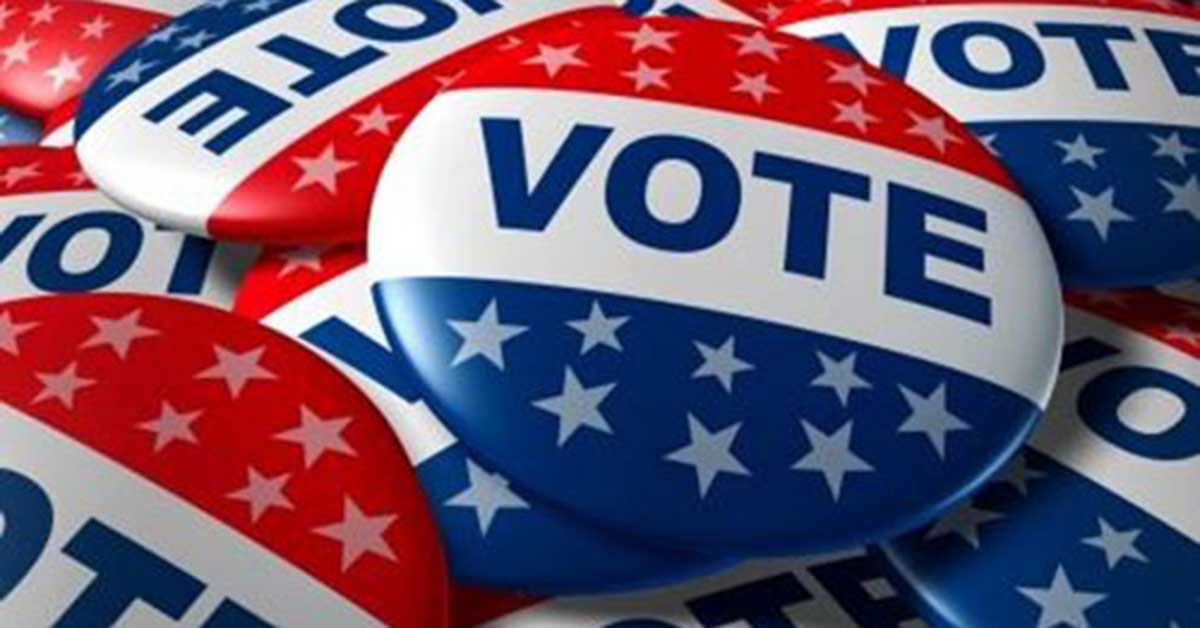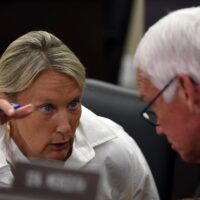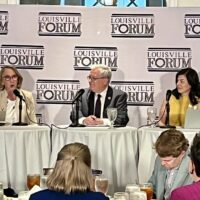On a September afternoon at Western Kentucky University, pop culture mingled with politics during a Rock the Vote registration drive. A recording of Taylor Swift’s “Look What You Made Me Do” played in the background, as Jeb Veeck with College Republicans manned an information table on campus.
“Are you thinking about joining College Republicans?” he asked a student?.
As a Republican, Veeck has a lot of company. In Kentucky, the GOP has been outpacing the Democratic party in terms of new voters for many years.

Secretary of State Alison Lundergan Grimes says political affiliation is starting to match the changing political landscape in the Bluegrass State.
“We obviously have a legislature now that is completely Republican for the first time,” said Grimes. “The House, which used to be controlled by Democrats, is now all controlled by Republicans, and what we’re seeing in terms of voter registration statistics.”
Stephen Voss, a political science professor at the University of Kentucky who specializes in elections and voting behavior, said the registration balance is trending closer to how Kentuckians have been voting in national elections.
“A lot of people remain registered Democrat, in part, because even though they’ve been voting Republican, they don’t really identify emotionally with the GOP,” explained Voss. “They indicate they’d like to vote for Democrats if they felt the Kentucky Democratic Party was offering them someone more acceptable, someone not as much as like the national Democratic Party, but more like a more traditional Democrat that used to be dominate in the state.”
While there’s a continuing shift toward the GOP in Kentucky, Voss points out it wasn’t until the most recent statewide election, in 2015, that Republicans made big gains in winning constitutional office.
“Most of the offices were held by Democrats, so we know in the context where Kentucky voters are upset with the national Democratic party, they’re willing to elect Democrats to statewide office,” Voss said. “It’s only been one election that Republicans held most of the constitutional offices, so they haven’t really grown deep roots.”
- RELATED: Voter registration deadline for Kentuckians is Oct. 7
- RELATED: Ky. League of Women Voters president backs proposal to boost turnout
Voss thinks the 2008 election of President Barack Obama accelerated Kentucky’s shift toward the GOP. According to the state Republican Party, the GOP has gained around 400,000 voters since 2008.
But Voss doubts President Donald Trump is responsible for much of the trend.
“Before he really appeared on the political scene, the shift in registration to Republican was already going strong,” said Voss. “I think the building of the Kentucky Republican Party has been a very long process, over a couple of decades.”
As of August, the state had 3,259,257 registered voters, according to data from the Secretary of State’s Office. Democrats had 1,597,244 registered voters. Republicans had 1,382,874. While Democrats outnumbered Republicans by more than 214,000, those registration figures don’t necessarily help predict election results.
Grimes says an increasing number of Kentucky voters are registering as Independent. Plus, many who are registered won’t actually show up at the voting booth. Grimes points out that in 2015, just over 30 percent of registered voters turned out on Election Day.
“What that meant on election night, the current governor won his election by just over 16 percent of eligible Kentuckians actually getting out to vote,” Grimes said. “We can and should be doing better.”
The first step toward voting is registering, and the deadline is Monday, Oct. 7, at 4:00 p.m. local time in county clerk’s offices, or online. That date is also the deadline to change party affiliation ahead of the Nov. 5 general election.
With the state Board of Elections recently designating about 170,000 voters as inactive,
Grimes said it’s also important for Kentucky voters to review and update their registration.
While Kentucky exceeds the national average for registered voters, about 30 percent of the population that’s eligible to cast a ballot remains unregistered.
(This story first ran on Kentucky Public Radio.)






